Mofe Adeyemi
MENYO-20k: A Multi-domain English-Yorùbá Corpus for Machine Translation and Domain Adaptation
Mar 15, 2021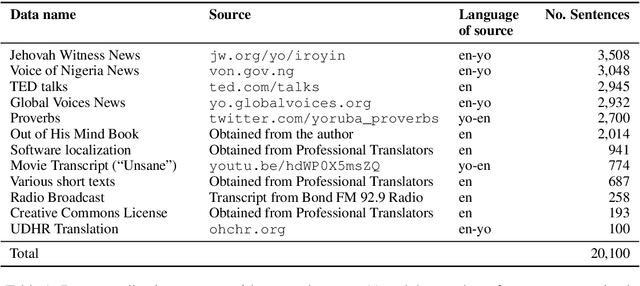

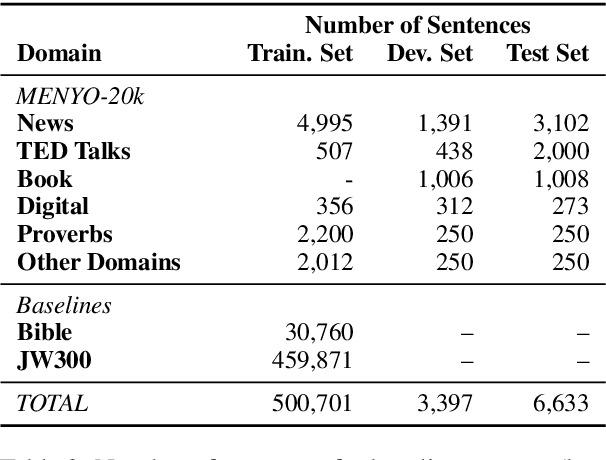

Abstract:Massively multilingual machine translation (MT) has shown impressive capabilities, including zero and few-shot translation between low-resource language pairs. However, these models are often evaluated on high-resource languages with the assumption that they generalize to low-resource ones. The difficulty of evaluating MT models on low-resource pairs is often due the lack of standardized evaluation datasets. In this paper, we present MENYO-20k, the first multi-domain parallel corpus for the low-resource Yor\`ub\'a--English (yo--en) language pair with standardized train-test splits for benchmarking. We provide several neural MT (NMT) benchmarks on this dataset and compare to the performance of popular pre-trained (massively multilingual) MT models, showing that, in almost all cases, our simple benchmarks outperform the pre-trained MT models. A major gain of BLEU $+9.9$ and $+8.6$ (en2yo) is achieved in comparison to Facebook's M2M-100 and Google multilingual NMT respectively when we use MENYO-20k to fine-tune generic models.
Participatory Research for Low-resourced Machine Translation: A Case Study in African Languages
Oct 05, 2020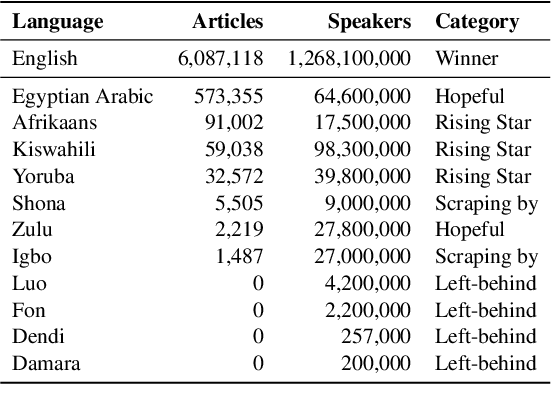
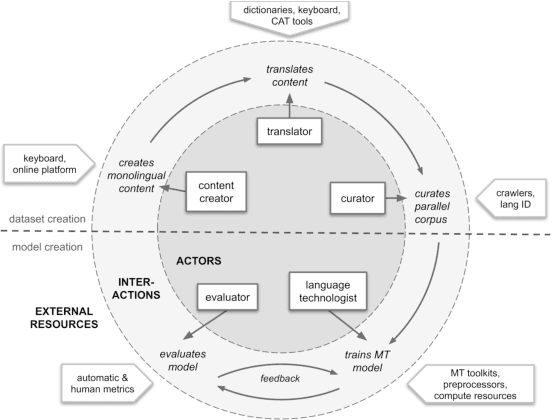
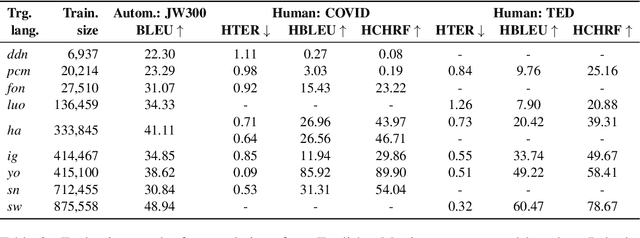
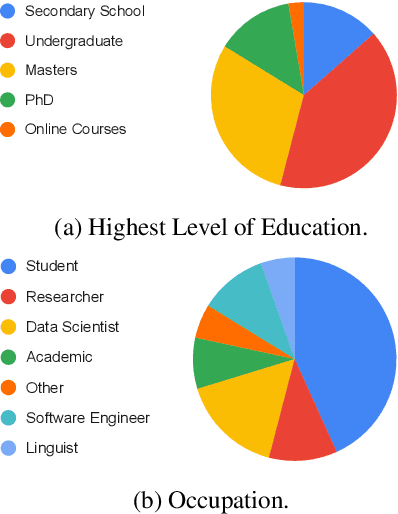
Abstract:Research in NLP lacks geographic diversity, and the question of how NLP can be scaled to low-resourced languages has not yet been adequately solved. "Low-resourced"-ness is a complex problem going beyond data availability and reflects systemic problems in society. In this paper, we focus on the task of Machine Translation (MT), that plays a crucial role for information accessibility and communication worldwide. Despite immense improvements in MT over the past decade, MT is centered around a few high-resourced languages. As MT researchers cannot solve the problem of low-resourcedness alone, we propose participatory research as a means to involve all necessary agents required in the MT development process. We demonstrate the feasibility and scalability of participatory research with a case study on MT for African languages. Its implementation leads to a collection of novel translation datasets, MT benchmarks for over 30 languages, with human evaluations for a third of them, and enables participants without formal training to make a unique scientific contribution. Benchmarks, models, data, code, and evaluation results are released under https://github.com/masakhane-io/masakhane-mt.
 Add to Chrome
Add to Chrome Add to Firefox
Add to Firefox Add to Edge
Add to Edge